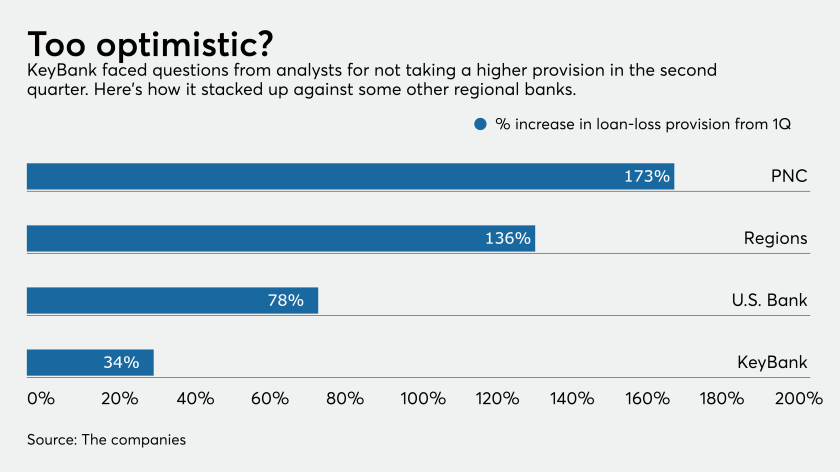As the economic damage from the COVID-19 pandemic multiplies, the credit scores of millions of U.S. consumers will likely suffer in the coming months unless effective prevention measures are implemented.
Congress must decide quickly whether to require the financial industry to take steps aimed at averting a flood of derogatory reports to the credit bureaus. Industry officials insist that they already have the tools necessary to do so, but many Democrats on Capitol Hill are calling for more forceful measures.
Legislation introduced last week by Sens. Sherrod Brown, D-Ohio, and Brian Schatz, D-Hawaii, would require a four-month moratorium on all negative credit reporting. People whose economic fortunes suffer longer-lasting damage would get additional protection.
Those kinds of consumer protections are not currently included in the emergency relief legislation under consideration in the Senate, where Republicans hold a majority. But the credit bureaus are also facing pressure from congressional Democrats to implement a moratorium on their own.

Last Tuesday, more than 70 House Democrats urged the CEOs of Experian, Equifax and TransUnion to temporarily cease reporting missed payments on hospital bills, mortgage payments and credit card debt.
“Adverse credit events caused by COVID-19 will have crippling, long-term and devastating effects for those who can least afford it, if credit reporting agencies are unwilling to adapt,” the House Democrats wrote in a letter.
But the credit bureaus argue that suppressing the flow of negative information about particular borrowers would lead to less accurate loan decisions, and that lenders would have to compensate either by charging higher interest rates or reducing the provision of credit.
Other regionals set more aside for loan losses than the Cleveland bank did in the second quarter, and its ratio of reserves to total loans is slightly lower, too. But Key executives say the portfolio is balanced and holding up well despite the pandemic’s economic toll.
Massachusetts Society of CPAs president and CEO Amy Pitter is spearheading a group of 28 state society heads who have sent a letter to congressional leaders.
The Tax Cuts and Jobs Act created opportunity zones as an economic development tool to stimulate investments in distressed communities.
“We think that’s the wrong approach,” said Francis Creighton, president and CEO of the Consumer Data Industry Association, a trade group for the credit bureaus.
In situations where the borrower has been granted forbearance, which is an agreement to delay a payment obligation, the lender may elect to inform the credit bureaus that the obligation was paid as agreed, Creighton noted.
He also said that when lenders can use a special code to flag missed payments that are tied to unforeseen circumstances, such as the ongoing pandemic. Companies that rely on information from the three bureaus to calculate credit scores treat this specially coded information neutrally, so that it neither helps nor hurts the borrower, he said.
“That’s worked in the past. We think it can work here,” Creighton said.
Lenders have one additional option to prevent damage to consumers’ credit scores, according to David Stein, an attorney at Covington & Burling who frequently represents financial industry clients. He said that lenders can stop reporting data to the credit bureaus altogether, though he acknowledged that doing so would degrade the usefulness of the reporting system.
For their own part, the three credit bureaus have been encouraging consumers to talk to their lenders to see if assistance is available, and to pay whatever they can afford. Equifax and TransUnion are also advising consumers that they can add a comment to their credit reports noting that they are unable to pay because of the pandemic.
Consumer advocates say these kinds of steps are insufficient, since many lenders will continue to report negative information to the credit bureaus. Lenders that furnish information to the three bureaus are not required to use the special codes when borrowers miss payments in disaster situations.
A 2018 report by the Consumer Financial Protection Bureau analyzed the use of those codes following Hurricane Harvey, which devastated the Houston area in August 2017. It found that three months later, less than 40% of the borrowing relationships listed on consumers' credit reports in the Houston metro area had the natural disaster code.
The CFPB also determined that the majority of consumer lenders did not use the code at all in the wake of Hurricane Harvey, though larger lenders were more likely to use it than smaller lenders.
Voluntary measures by the financial industry will not work for the bulk of consumers, said Ed Mierzwinski, senior director of federal consumer programs at the U.S. Public Interest Research Group. He said that the Senate Democrats’ legislation would protect consumers in three ways: by stopping lenders from reporting negative information, by barring the credit bureaus from placing negative information on credit reports, and by requiring the removal of such information if it appears.
For consumer advocates, an advantage to pressuring the major credit bureaus is that there are only three of them. “They’re a choke point,” Mierzwinksi said.







